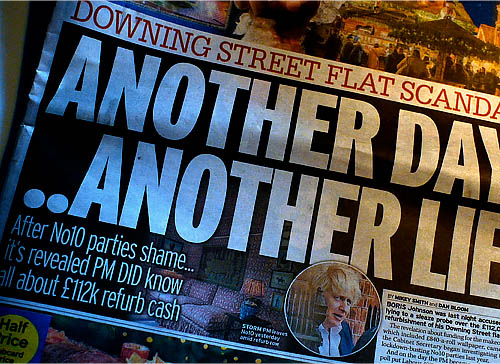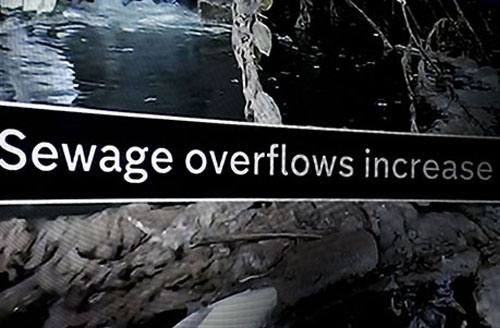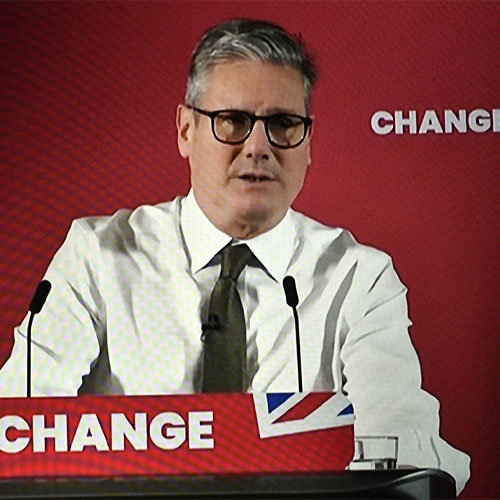Politics - Who To Trust?
So at last the UK Conservative government has called the election, after several years of losing the trust of the UK population and after many expensive, incompetent mistakes, and five different prime ministers over fourteen years. But who to entrust your vote with? If you watch the various interviews and ‘new policies’ you might, like me, wonder if these people are really serious about solving the country’s many problems. They spend more time talking down their opposition than fully explaining their own strategies and beliefs. They, with just a few exceptions, seem to be playing a rather childish game not helped by some very poor questioning. It seems to me that only the Liberal Democrats and Green Party have really grasped the true situation facing most of the population. The Green Party are being buried by the blanket media coverage of the main political parties and are seldom seen or heard. The Conservatives in particular are selectively using statistics to give false impressions of the real situation the country is in. Examples are statistics on economic growth, trade, crime, police numbers and more. Labour is playing it safe by declaring policies which are vague and frankly underwhelming (to not win a workable majority with the Conservative’s poor 14-year record and current poll standing must be viewed as a failure of leadership).
One of the most interesting aspects of the current election is the fact that seventy-seven Conservative MPs will not be standing for re-election, including some of the leading advocates of Brexit…It’s rather like rats leaving a sinking ship with the worst implications of Brexit still be be revealed (and it’s already difficult enough).
The UK is in a desperate position with most major public and private institutions in desperate condition. Health, dentistry, justice, policing, housing, local and regional councils, social care, industry, trade, nationalised industries - you name it and it’s in critical condition after fourteen years of the most abject governance in decades.
Scotland’s SNP party has had more than its fair share of problems but Independence can provide a new and exciting beginning for Scotland despite difficulties involving currency and border once it rejoins the EU. The Scottish population must give the SNP and Greens a convincing enough vote to force through another and final Independence vote. It is the only way that Scotland can avoid the UK’s two main parties who, on current and past performance, will struggle to accept an Independent Scotland and offer nothing to solve existing major national problems. The opportunities for Scotland are too important to ignore and must be grasped tightly. The future could be so much brighter for Scotland and comparable to other small Independent, prosperous nations. The centralised and tight control of Westminster must not be allowed to constrict Scotland’s future prosperity, including its full membership of the EU.
After Northern Ireland’s DUP criminally incompetent stance where it denied the population a working devolved government for over two years it is now clear that Northern Ireland should become part of the prosperous EU member, the Irish Republic. And don’t forget Northern Ireland voted substantially to stay in the EU (as did Scotland).
But here in the UK what are the political options for the electorate? I have been a Labour supporter for more years than I care to remember but I have important concerns about a future (and virtually guaranteed) Labour government. The first concern is Labour’s reluctance to consider re-joining the Single Market and Customs Union. Economic growth is a real concern and needs critical attention. Without substantial improvement the state of public institutions mentioned above cannot be funded to an acceptable minimum standard over the next five years. Trade with our closest and substantial markets is key to an acceptable level of growth but without closer ties with the EU growth will not materialise. Alongside this is the tax regime. The UK has one of the most complex tax systems in the world where defining loopholes has become big business for City of London firms. The system has to be simplified dramatically with more tax being paid by the wealthiest and their unearned wealth to be more open to scrutiny and taxation. There must be a greater emphasis on taxing online businesses who currently enjoy a more favourable commercial environment than their land-locked competitors.
But here’s the problem: Labour is so afraid of upsetting potential voters and wealthy supporters that promising radical change is not on the political agenda. Instead the party leadership is promising little that will make the major differences needed. Instead, it’s promising, in effect, more of the same with only nominal changes in taxation that will make little difference to the lives of voters. There have also been several major policy u-turns which makes one wonder what Labour actually believes in. The Labour leader declares that he has changed Labour but is it for good or bad? What precisely is the nature of the change? The jury is still out on that.
The prime minister made five promises early in his short tenure. Only one has been met. The level of inflation was inevitably going to decrease from the high of over eleven percent down to half this level. He now claims that the government contributed to the decline but in truth his government had little influence. The Bank of England higher interest rates; commodity, food and power prices with general market movements; were the main reasons. But such is the poverty of opposition politicians and the media this misconception has never seriously been questioned.

|

The Swell Season |
LATEST GALLERY IMAGES

While Netanyahu Speaks 
In Whose Name? |
|
|







